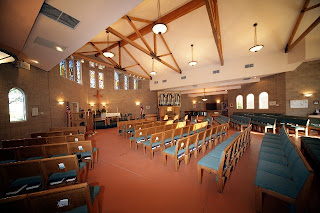
Charles Arn, in his book How to Start a New Service: Your Church CAN Reach New People begins with a chapter on which congregations should, or should not, begin a new church service. By new, he means new-style, with the goal of reaching out to new people to continue Christ’s mission to make disciples. Should your congregation consider starting a new-style service? The following questions help determine the answer:
1. Is your congregation’s highest priority being “like a family”?
2. Is your congregation’s highest priority preserving “correct” doctrine and “correct” interpretation of Scripture?
3. Has your congregation split from a more liberal church or denomination in the past 50-75 years?
4. Is your congregation’s highest priority survival (i.e. with avoiding death than pursuing life)?
5. Does your priest/pastor/leadership team plan to leave in the coming year?
6. Does your congregation seem too small to add another service?
7. Is your congregation’s attendance declining?
8. Is your congregation’s sanctuary less than filled on Sundays?
9. Does your congregation lack the personnel to add a new service?
10. Does your theology or liturgical beliefs not allow for a different style?
11. Is your church in a bad location?
Response: Did you answer yes to question number 1, 2, 3, 4, or 5? If so, starting a new service is probably not the best strategy for your congregation at this time. About 50% of congregations fall into this category.
Did you answer yes to question number 6, 7, 8, 9, 10 or 11? Guess what? These are excuses for not starting a new service, but they are not reasons. If the idea of a new service (despite the excuses) seems like it might have merit, consider purchasing Arn’s book which is widely available (http://www.amazon.com/How-Start-New-Service-Church/dp/0801090377/ref=pd_bbs_sr_1/002-9706170-8008855?ie=UTF8&s=books&qid=1175021528&sr=8-1 . )

